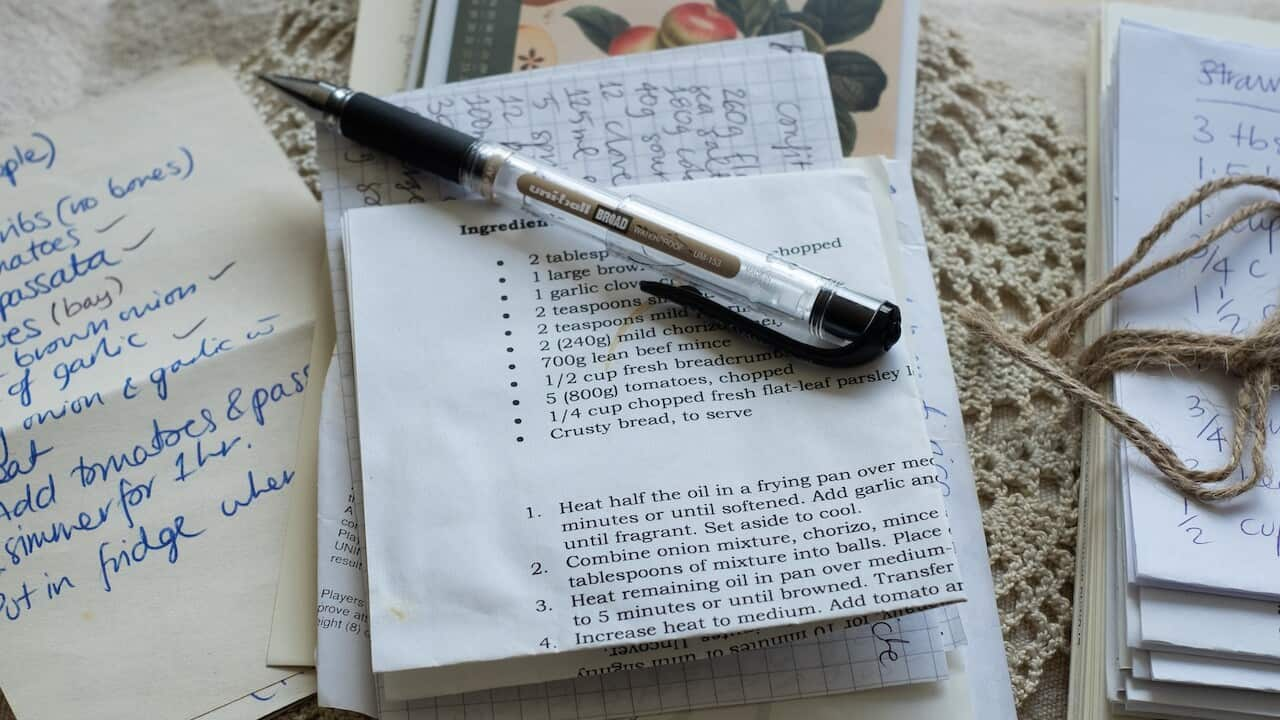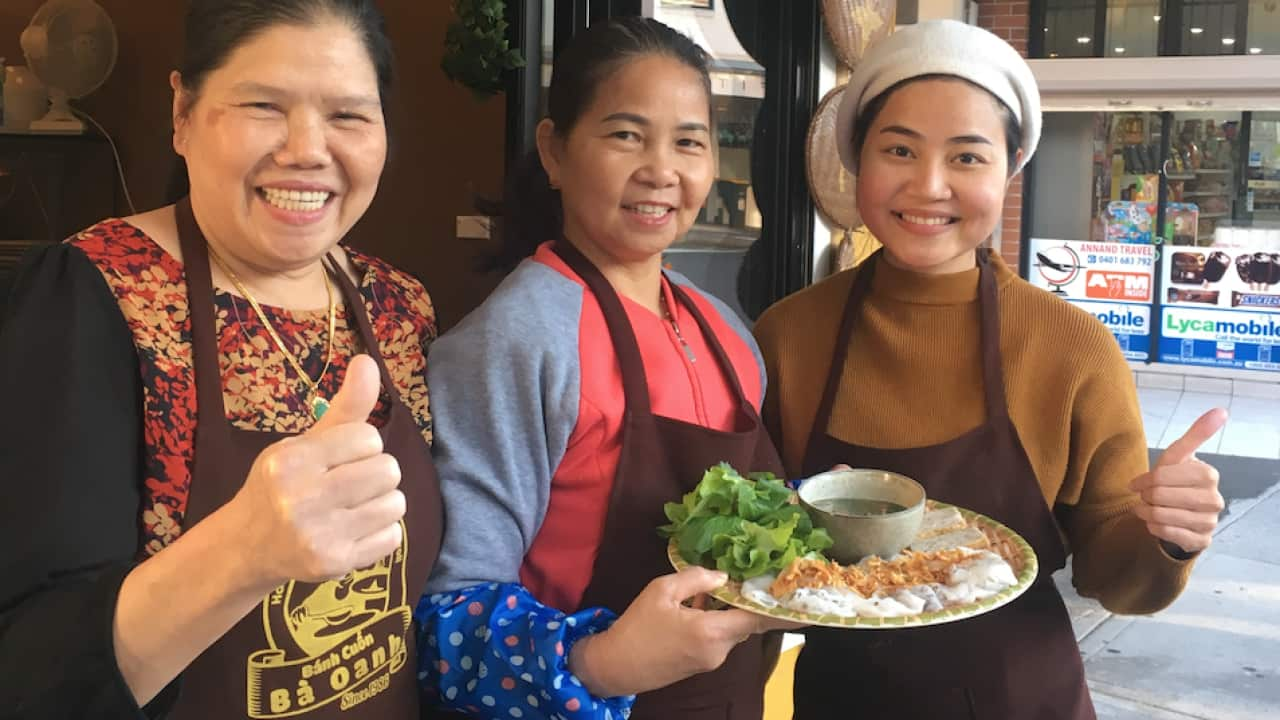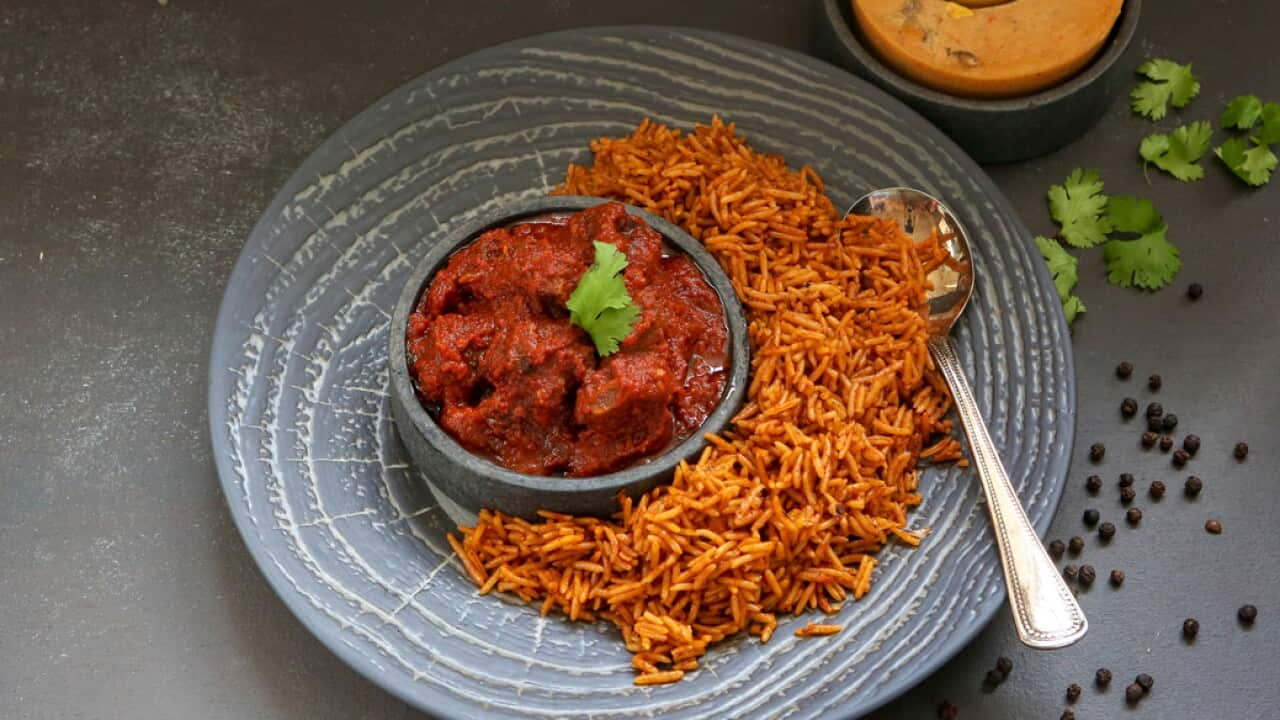--- airs weeknights on SBS Food from Monday April 19 at 7.00pm and 10.00pm, or stream it free on . Catch the recipes handed down recipe on Tuesday 14 September. ---
Writing it down may sound simple, but there is much more to a recipe than its ingredients – literally and figuratively.
Recently, my mother spoke to me of a soup my nonna used to make. Overjoyed at the chance to expand my memories of nonna, my mother and I busily recorded the recipe on WhatsApp – a wild fennel and roasted chestnut soup. Despite unearthing a priceless gift from the past, this experience also reminded me of what's required when recording family recipes.

Nonna's wild fennel and chestnut soup. Source: Jennifer Curcio
Recording
There are countless ways to do this: pen and paper, videos or photos, phone calls and messages. No matter which one, choose a method that feels natural to you and your family member passing on their recipe.
Writing the recipe down, is, of course, important, but nothing compares to cooking with the family member whose recipe you're recording and tasting their version (noting details they may forget to mention).
Prolific cookbook author reflects on the process of recording recipes. "I love listening to my mum translating a recipe from (great uncle) Leo who is 96…in Finland, on the lake at the summer house and…just thinking this is what it is about.
"It's not about getting everything ready-made, spoon-fed – it's about your path that you will take to find it."
Measurements
The more familiar someone is with a recipe, the more they can communicate measurements like "a handful of this" or "a pinch of that'. , cookbook author of , an exploration of the Siberian, Russian and Soviet culinary heritage she grew up with, speaks of the importance of "having your own system", especially when going into a different culture. "I brought my own cooking utensils when I went to Russia to do the cookbook research." Measure out and weigh ingredients with your own kitchen tools to confirm quantities.
Asking questions is essential if you haven't tasted a dish before. What should the dish smell, taste and look like? This also applies during cooking. If a recipe calls for frying onions, for example, how long for? Also, consider details like expected changes in colour or consistency.
Ingredients
'Just like grandma used to make' is wonderful in theory but with time, the way we use ingredients changes. My nonna often used lard, great grandma's recipes featured margarine, and historically sugar was used in larger amounts. Update ingredients to reflect the current times or personal preferences.
Migration also means recipes journey from their origins too. I cannot make my nonna's soup with the wild fennel she hand-picked in Sardinia, so I use domesticated fennel as my mother does in Australia. Recreate the recipe using what's available to you.

My collection of family recipes recorded over the years. Source: Jennifer Curcio
Stories
Every recipe has a story or memory associated with it. Why is yours special to you?
For my mother, nonna's soup connects her to her childhood food experiences, Sardinian winters, the snow outside and the smell of firewood burning, but most importantly, memories of her family.
In , features her pappou's recipe for fried chips and artichoke bottoms that she: "ate under the lemon trees and the vines in August in Cyprus." For her, it's these memories and stories that make you "feel connected to your ancestors, and for me, it's something essential that we pass on. It's grounding and people need to have something to hold on to."
For , the importance of preserving family recipes is "beautiful and almost some kind of mystical, metaphysical way how food can resurrect the past and bring up people that are no longer with you and […] introduce your child to those family members that are no longer there."
Recording your family recipes is an art, but the true beauty lies beyond the ingredients.
Love the story? Follow the author here: Twitter , Facebook , Instagram .
STAYING CONNECTED

Serving up love and family recipes from a Greek kitchen











